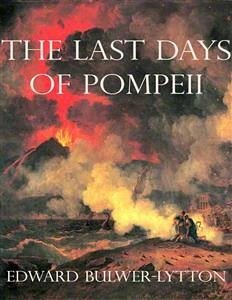
The Last Days of Pompeii (eBook, ePUB)
Enriched edition. Love, Betrayal, and the Wrath of Vesuvius: A Tale of Ancient Pompeii
Kommentar: Elliott, Julian / Redaktion: Good Press

PAYBACK Punkte
0 °P sammeln!
In "The Last Days of Pompeii," Edward Bulwer-Lytton weaves a rich tapestry of historical fiction set against the backdrop of the catastrophic eruption of Mount Vesuvius in 79 A.D. The novel is marked by its vivid descriptions and dramatic character arcs, showcasing Bulwer-Lytton's ability to merge elements of Romanticism with a keen sense of moral purpose. The narrative intricately explores themes of love, ambition, and the fleeting nature of life, reflecting the societal preoccupations of the Victorian era while engaging with classical history. Through a dynamic interplay of fictional and his...
In "The Last Days of Pompeii," Edward Bulwer-Lytton weaves a rich tapestry of historical fiction set against the backdrop of the catastrophic eruption of Mount Vesuvius in 79 A.D. The novel is marked by its vivid descriptions and dramatic character arcs, showcasing Bulwer-Lytton's ability to merge elements of Romanticism with a keen sense of moral purpose. The narrative intricately explores themes of love, ambition, and the fleeting nature of life, reflecting the societal preoccupations of the Victorian era while engaging with classical history. Through a dynamic interplay of fictional and historical characters, Bulwer-Lytton evokes the grandeur and tragedy of ancient Rome, all while accentuating the timeless struggle between good and evil. Edward Bulwer-Lytton, a prominent Victorian novelist and playwright, was deeply influenced by his fascination with history and mythology, both of which permeate his works. His background as a member of Parliament and his interest in the supernatural and the exotic further fueled his creative endeavors. "The Last Days of Pompeii" exemplifies his ambition to illuminate the moral dilemmas faced by individuals against a backdrop of inevitable disaster, reflecting the anxieties and aspirations of his contemporary society. This novel is highly recommended for readers who appreciate a masterful blend of historical detail, rich characterization, and profound moral inquiry. As a seminal work in the canon of Victorian literature, it offers profound insights into the human spirit, inviting reflection on the transient nature of life and the enduring impact of cultural legacy. In this enriched edition, we have carefully created added value for your reading experience: - A succinct Introduction situates the work's timeless appeal and themes. - The Synopsis outlines the central plot, highlighting key developments without spoiling critical twists. - A detailed Historical Context immerses you in the era's events and influences that shaped the writing. - A thorough Analysis dissects symbols, motifs, and character arcs to unearth underlying meanings. - Reflection questions prompt you to engage personally with the work's messages, connecting them to modern life. - Hand-picked Memorable Quotes shine a spotlight on moments of literary brilliance. - Interactive footnotes clarify unusual references, historical allusions, and archaic phrases for an effortless, more informed read.
Dieser Download kann aus rechtlichen Gründen nur mit Rechnungsadresse in A, B, BG, CY, CZ, D, DK, EW, E, FIN, F, GR, H, IRL, I, LT, L, LR, M, NL, PL, P, R, S, SLO, SK ausgeliefert werden.













